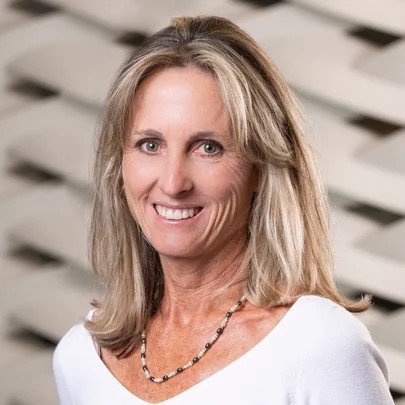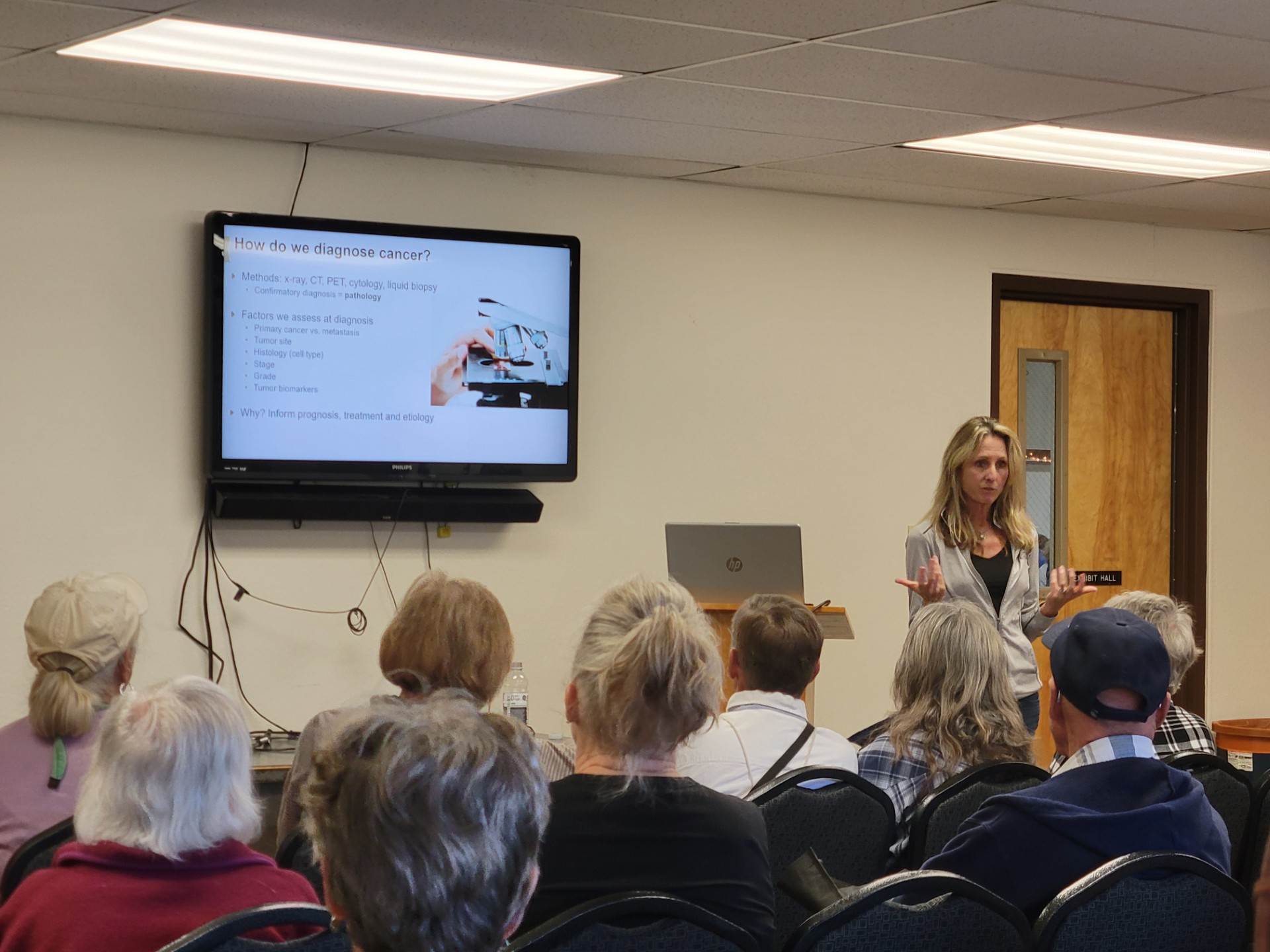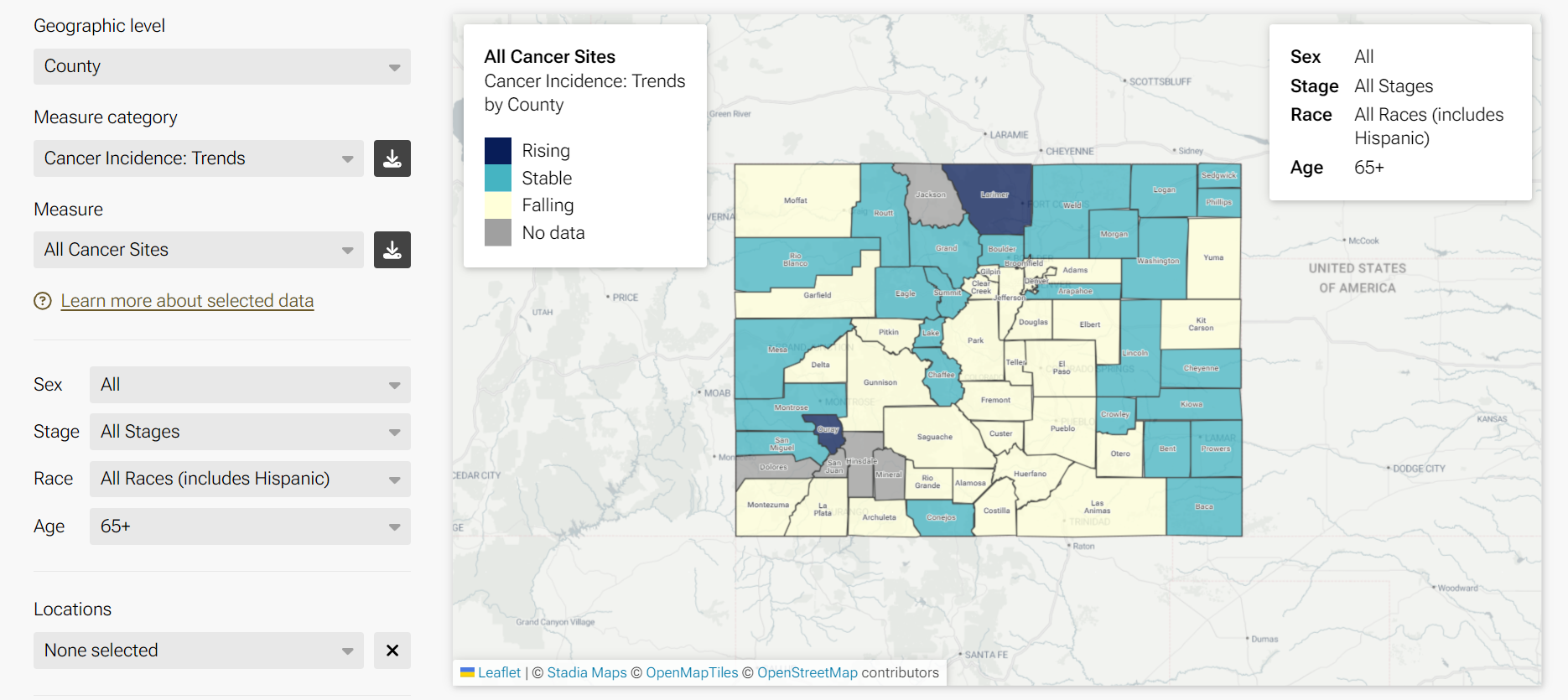Bringing Cancer Care Across Colorado
The Challenges of Expanding Cancer Care for the CU Cancer Center
Elias Born | CU Anschutz Multidisciplinary Center on Aging Oct 18, 2024
Access to opportunities to participate in cancer research, and benefit from resulting advances in prevention, early detection and treatment is a significant challenge in many communities across Colorado – a situation the University of Colorado (CU) Cancer Center has been working to improve.
"Our mission is to bring education, interventions and research from the Cancer Center into the community,” Cancer Center Assistant Director of Dissemination and Implementation Dr. Jan Lowery said.
As a part of the Office of Community Outreach and Engagement (COE) within the center, Lowery helps spearhead community outreach efforts.
Establishing Regional Networks
Lowery stated, “Tackling disparities in cancer prevention screening, diagnosis and treatment is key to using research results to improve health locally. As the only National Cancer Institute-designated center in Colorado, and 1 of only 72 nationwide, the CU Cancer Center is working with the Colorado Cancer Coalition to establish regional cancer networks in underrepresented and rural areas.”
This initiative seeks to work with the community and establish a leader and local coalition, and help communities set priorities for cancer prevention efforts using data to determine certain cancer burdens in the region. For example, one community the center has assisted in the past prioritized addressing low screening rates for colon cancer and the cancer center helped them to distribute screening tests to their local residents.
"We started with education, and I think that was enlightening. And people really appreciated the fact that we came with local information about cancer burden, risks and screening behaviors," Lowery said.
Bringing Resources to Communities
Screening kits are highly recommended by the Cancer Center, especially for those who are 40 and over. The kits can help identify lung, colon, breast and cervical cancers. These screenings are typically initiated with a conversation by a primary care provider. However, rural and aging populations in Colorado can struggle with obtaining cancer resources, including screenings, because of transportation and long drives.

- Dr. Jan Lowery presenting in Salida, Colorado. -
"What I kept hearing from communities, when I visit, is 'Jan, we want to hear about research, but not research where we have to go to Anschutz. Can you bring research where we can actually do it? Here?’” Lowery said.
While organizational changes within the state have affected regional cancer network activity, the vision for 2025 is to rebuild the regional centers with help from local communities. A goal is to engage these networks to help increase access to opportunities to participate in clinical trials.
Exploring Cancer in Colorado (ECCO)
The ECCO platform is a resource for end users to look at cancer burden across Colorado in an interactive mapping database. ECCO covers demographics, cancer rates, disparities, risk factors, environmental exposures, and social determinants of health, with locations for prevention, treatment, and survivorship resources available as well.

- Screenshot of the ECCO platform. -